‘Unknown 9: Awakening’ Remains Unknown As Latest Sweet Baby Inc. Title Debuts To Just 285 Peak Players On Steam
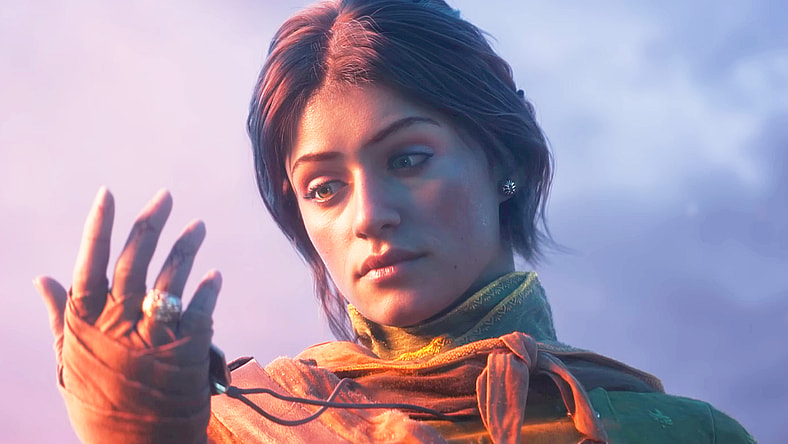
In late September, we predicted that the Reflector Entertainment-developed, Bandai Namco-published, and Sweet Baby Inc.-influenced Unknown 9: Awakening would be a critical and commercial disaster.
And now that the game is live, not only has said prediction turned out to be 100% on-point, but the results have proven even worse than expected.
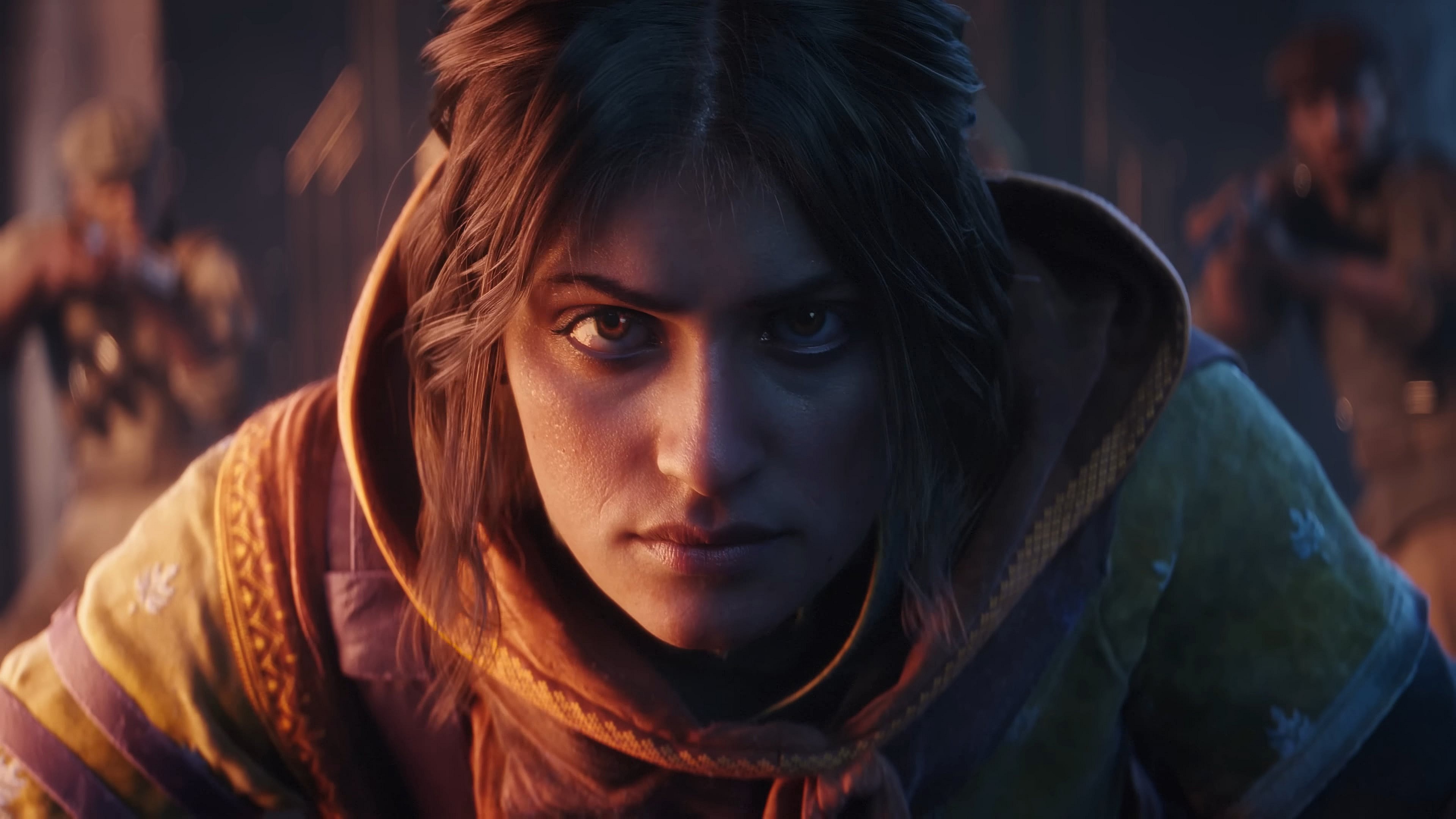
Per the Steam analytics outlet SteamDB, since its release on October 17th, the player count for the female-led game has thus far peaked at just 285 concurrent players, which it achieved on the evening of its second day on shelves.
These numbers also account for the fact that anyone who bought an AMD X870 or X870E motherboard was given the game free.
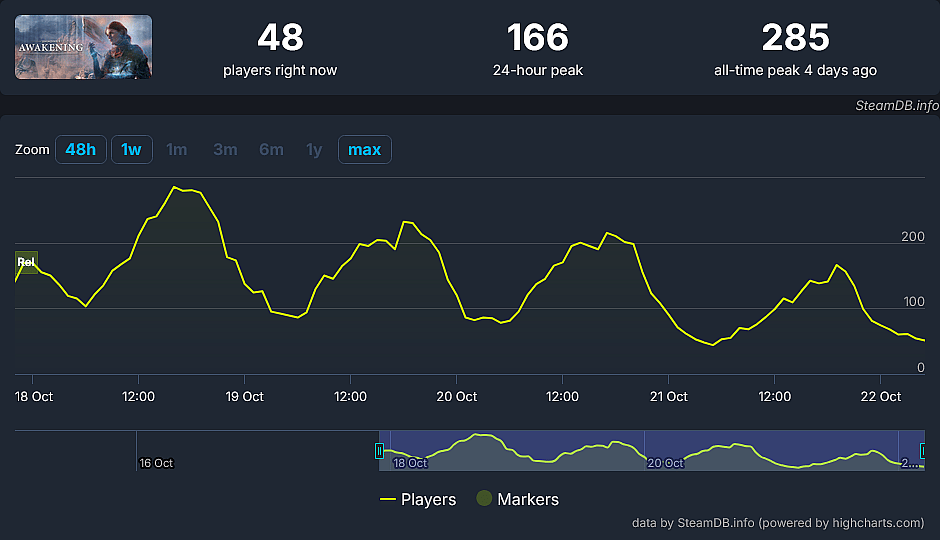
For those unaware of just what Unknown 9: Awakening is, per the game’s description, the action-adventure title places players in the shoes of “Haroona, a Quaestor born with the ability to venture into a mysterious dimension that overlaps our own, known only as the Fold.”
“On her quest for powerful hidden knowledge, Haroona will learn to master her unique connection to the Fold, which allows her to channel its powers into our world,” it continues. “But such power does not go unnoticed and Haroona quickly becomes the target of a splinter faction calling themselves the Ascendants, who want to use the Fold to alter the course of human history.”
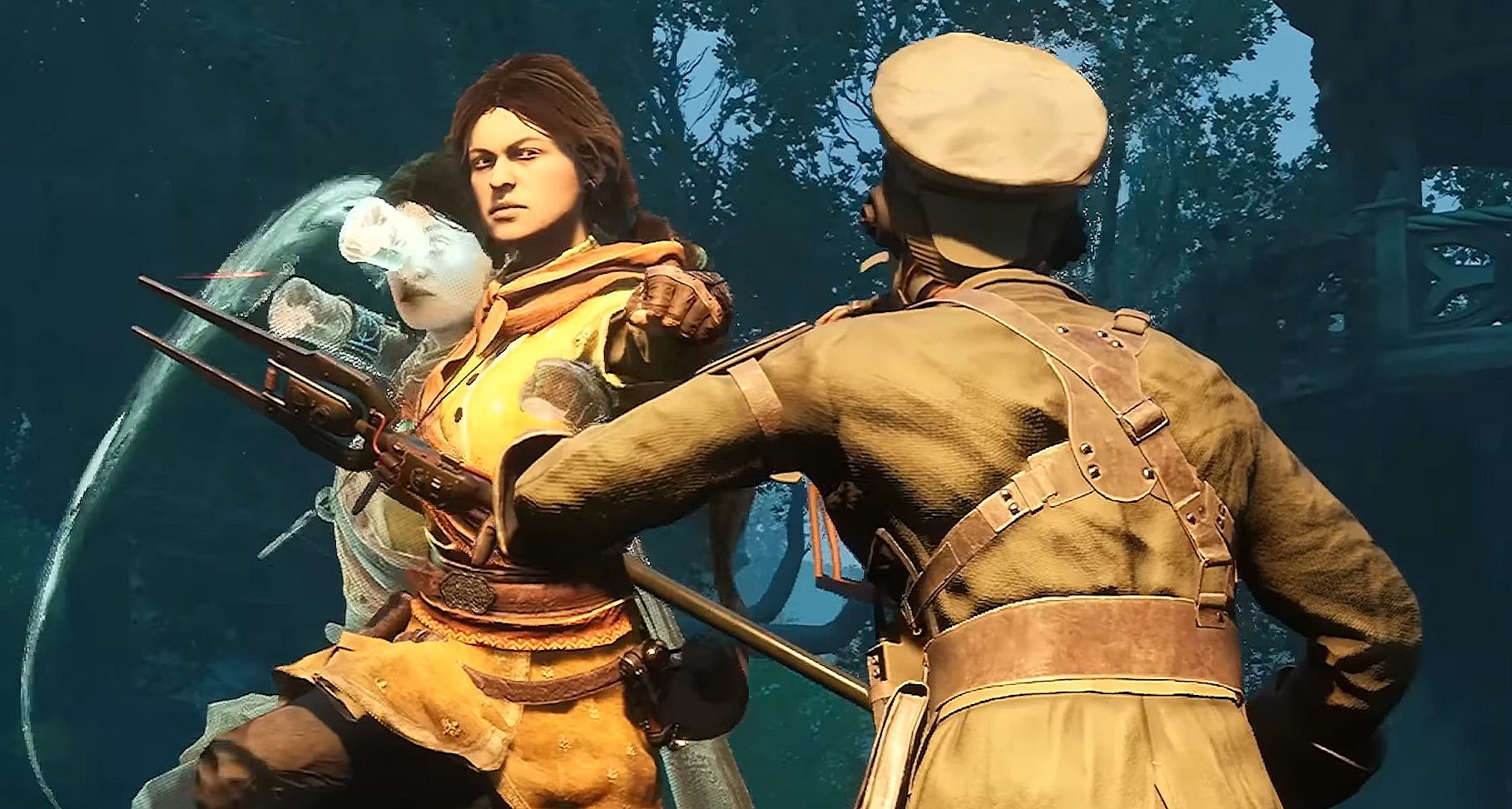
Admittedly, the game has an admittedly interesting premise, features an extensive level of world-building that heavily utilizes its the fact that mind control powers exist within its setting, and a few good stealth scenes and moves.
However, these qualities aren’t enough to save Unknown 9: Awakening from feeling like a dated, uninspired adventure, as on the other hand, the game’s combat is clunky, outdated, and repetitive, its enemy AI is poorly design, and its graphics feel more at home on the PlayStation 3 than modern hardware.
On the subject of graphics, while the appearance of the game’s protagonist was based on The Witcher star Anya Chalotra, Haroona herself looks androgynous and lacks the elegance of her real-life counterpart.
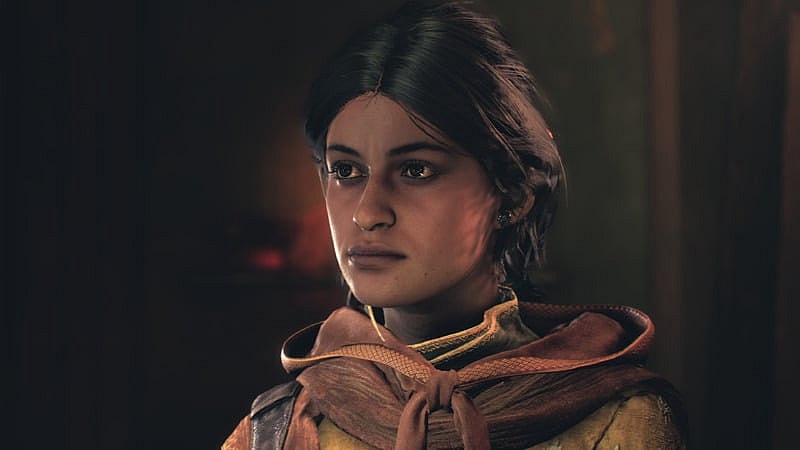
Combine all of this numerous player reports of frequent framerate dips and immersion breaking bugs, and simply put, there just isn’t enough ‘good’ to outweigh the ‘bad’ here.
To add insult to injury, Bandai Namco slapped the game with a $50 price, in doing so driving away a large swath of potential players who felt that the price was, to say the least, unjustified.
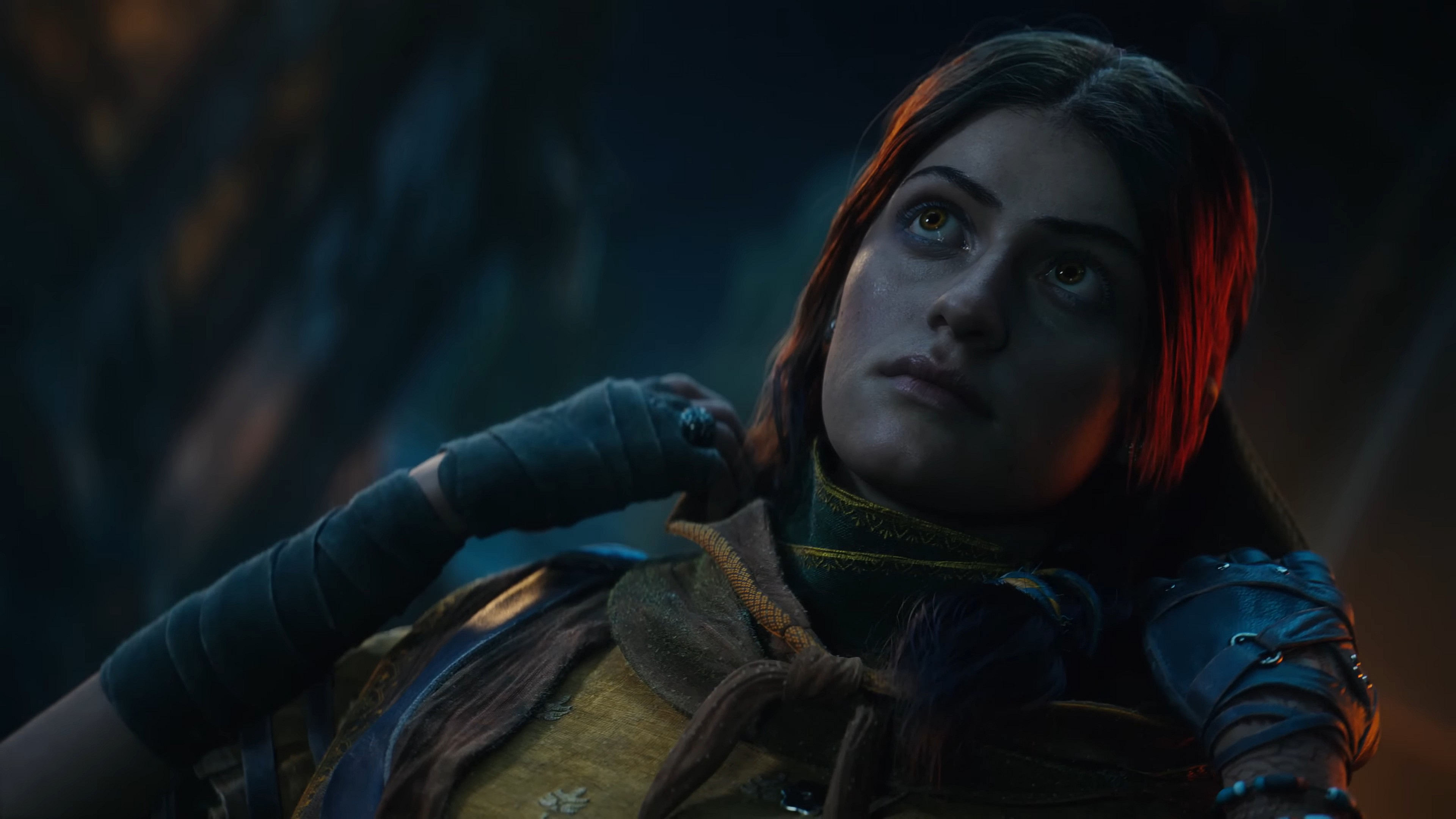
However, these aren’t the only problems the game is experiencing.
As noted above, Unknown 9: Awakening featured heavy involvement from the Diversity, Equity, and Inclusion-centric video game narrative consultation company Sweet Baby Inc., with CEO Kim Bedard and COO David Bédard having respectively been credited as the game’s Story Architect (in doing so creating the core of its story) and the Brand Content Manager at Reflector Entertainment.
In light of both their company’s identity politics-focused work and involvement in such previous commercially troubled titles as Suicide Squad: Kill the Justice League and Alan Wake 2, many players saw the red flags and decided to spend their money elsewhere.
And in making matters even worse, a trip down memory lane recalls how in September 2020, Bandai Namco Entertainment Europe and Oceania made the decision to acquire the Canadian-based Reflector Entertainment explicitly for the supposed ‘potential’ of a full-blown Unknown 9 universe.
This would have included comic book series, a podcast, and even a novel trilogy whose first entry would be written by bestselling author Layton Green, and more.
However, now that Unknown 9: Awakening has proved itself a failure, it remains to be seen what will become of this plan.
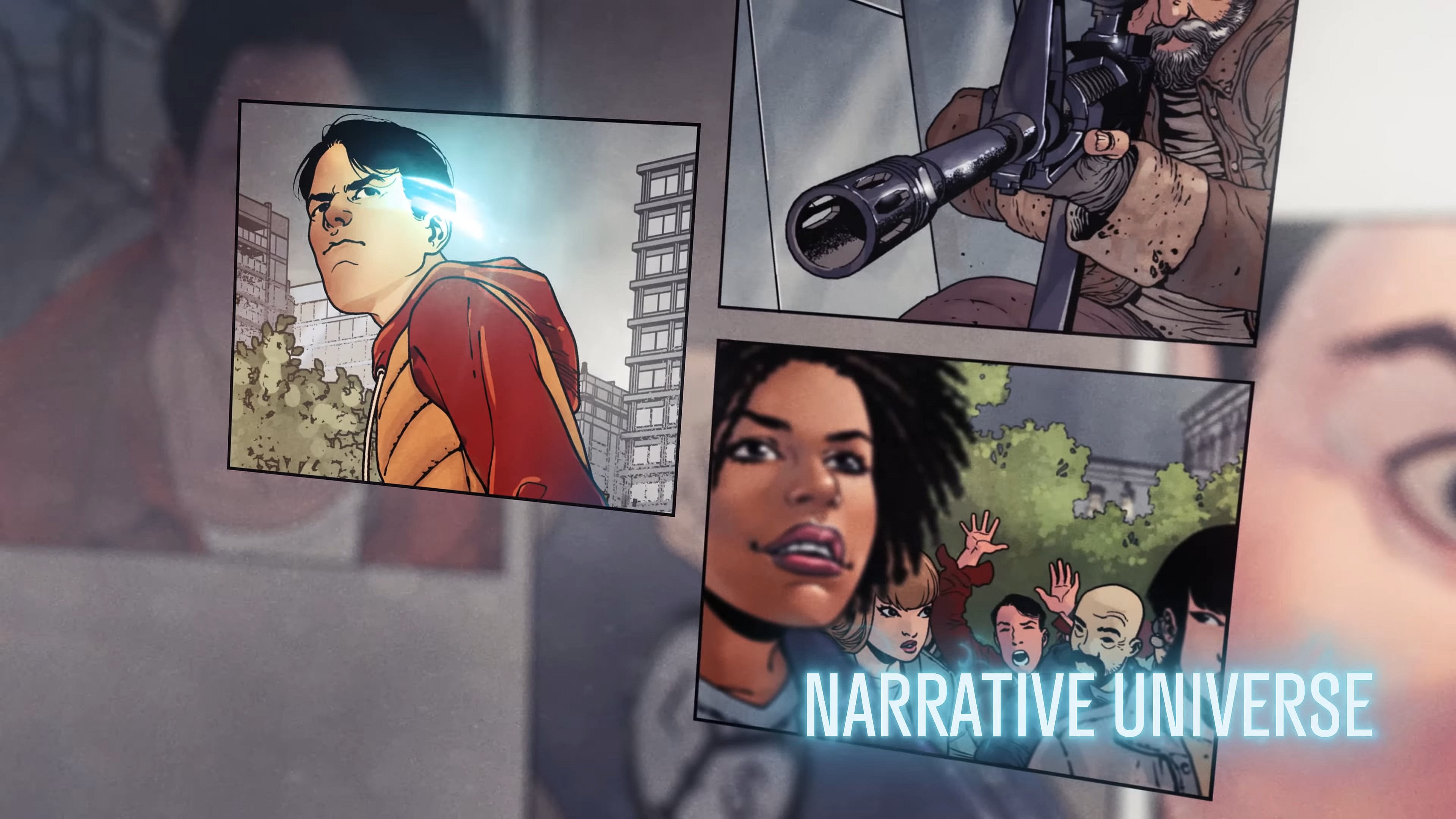
In recent years, we have seen an increase in triple-A financial and critical failures. As more high-budget games try to push the concept of ‘coporate-style DEI’ and the majority of fans stand against it, it feels like every day the industry is marching ever-closer to another crisis like the video game crash of 1983.
To avoid this, both developers and publishers will need to listen to the community more and stop making games for a non-existent audience. Otherwise, it’s almost certain history will repeat itself
